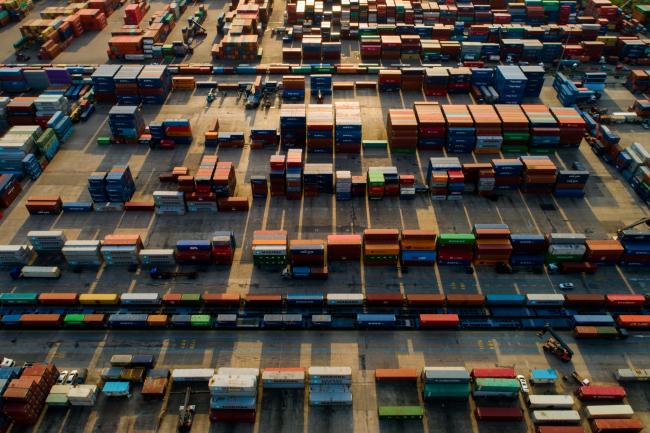(Bloomberg) -- The trade war between the U.S. and China is continuing to intensify, leaving some worried about the potential consequences for global growth.
Here’s our weekly wrap of what’s going on in the world economy.
Trade Turmoil
China has vowed to fight back against the Trump administration’s plans to impose tariffs on an additional $200 billion in Chinese goods, albeit with a subtle shift in tone and talks may still be on the table. American steaks, and German cars are among the early victims, while the escalating tensions are worrying some Wall Street economists, who are calculating the potential hit to growth, and hurting the confidence of investors in the euro area. On Thursday alone, China warned that new tariffs could lead to global economic recession, and the European Commission said the tensions pose significant downside risk to growth. Meanwhile, here’s a look at how things could get even uglier.
Read More:
- Trump Must Meet Xi to Stop Trade War, Top House Republican Says
- China Has Arsenal of Non-Tariff Weapons to Hit Back at Trump
- Trumponomics: Trade War Spotlights President’s Unorthodox Stance
- U.S. Shouldn’t Use Spurious Security Claim for Tariffs, Lew Says
Central Banks
Bank of Canada Governor Stephen Poloz brushed aside concerns about trade wars and pressed ahead with a fresh interest rate increase as inflation hovers at its highest in seven years. Meanwhile, a multi-colored graphic that’s made the rounds at the Federal Reserve hints that Jerome Powell could have to deal with faster inflation if President Donald Trump succeeds in throwing globalization into reverse.
The Bank of England, which is expected to hike next month, got good news as data suggested growth was rebounding, although politics may still derail its plans. Whatever happens, Governor Mark Carney’s communication will be back under the microscope. Elsewhere in central banking, Malaysia, Poland and Serbia kept rates unchanged, Ukraine tightened policy and European Central Bank President Mario Draghi said his inflation goal is within reach. And in Turkey, President Recep Tayyip Erdogan moved to cement his control over the economy, claiming the exclusive power to appoint central bank rate-setters.
Read More:
- Polish Rate Hikes Stay a Moving Target as Longer Pause Looms
- ECB Is Said to Spar With Governors on Far-Reaching Conduct Plan
- Croatia Nominates Former Central Bank Chief for Another Term
- After Years of Easing, Meet Quantitative Tightening: QuickTake
Labor Market Moves
Job-market news was rosy in the U.S. this week, with Americans quitting like never before as they’re feeling quite good about prospects in new gigs. The tighter labor market in Japan is finally pushing up worker wages. Expatriate workers in Saudi Arabia are leaving their work in hordes, but for roles beyond the borders. More than 18,500 civil servants lost their jobs in Turkey on charges of security violations. And France is talking a big game about leading in the global skills war.
Read More:
- Banking to Cannabis: McKinsey Has a Plan for Lebanon’s Economy
- Trump Tariffs May Lead to Job Cuts, Shutdowns, Fed Study Says
- Fed’s Williams Says Low Unemployment Spurring More Job Training
Weekend Reading
- Bloomberg Economics 2H 2018 Outlook: Tax Cuts Versus Trade War
- Myanmar’s Waiting for the Western Investment That Never Came
- Economist Who Fled North Korea Faults South’s Cooperation Plan
- Pakistan’s Indebted Economy Careens Toward Another IMF Bailout
- Tax Bonanza for Old Machines Could Hinder Trump’s Growth Goal
- Competition Was a Culprit in Housing Bust: Eco Research Roundup
- Pick Your World of 2060, With Trade War or With Innovation
Chart of the Week
To contact the authors of this story: Michelle Jamrisko in Singapore at mjamrisko@bloomberg.netDavid Goodman in London at dgoodman28@bloomberg.net
To contact the editor responsible for this story: Zoe Schneeweiss at zschneeweiss@bloomberg.net
©2018 Bloomberg L.P.
